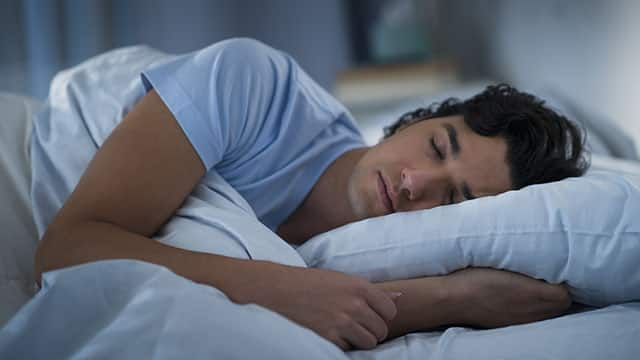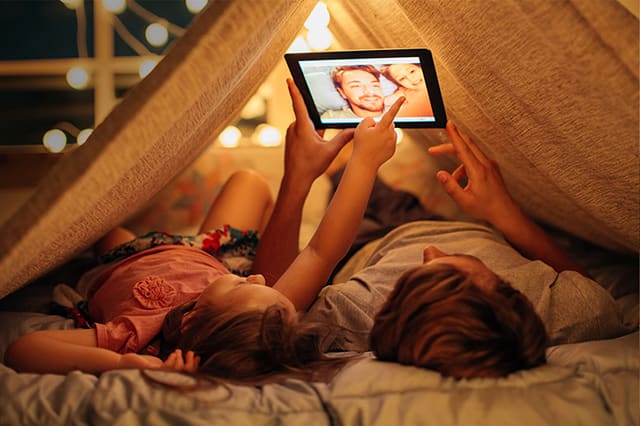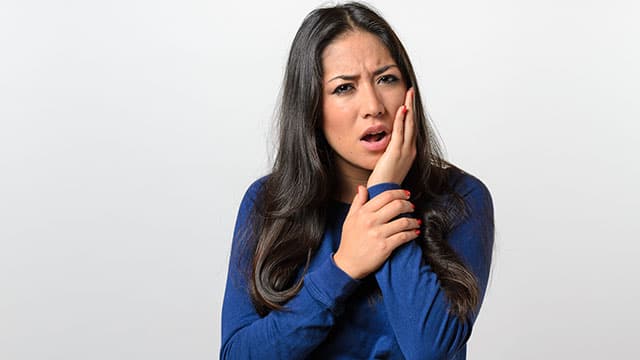What Is Sleep Apnea?
Sleep apnea is a condition that occurs when you stop breathing while you're sleeping. Don't worry, though. Breathing generally resumes on its own after a few seconds.
In sleep apnea, breathing during sleep stops for one of two reasons. Either because the upper airway becomes blocked or the brain fails to signal the breathing muscles during sleep. Common signs and symptoms of sleep apnea include:
- Snoring or gasping during sleep
- Reduced or absent breathing
- Sleepiness
- Waking up with a dry mouth
- Insomnia
- Irritability
Undiagnosed or untreated sleep apnea prevents people from having a restful sleep. But it affects more than just your quality of sleep. Sleep apnea also impacts your breathing and cardiovascular system. And believe it or not, sleep apnea also has an impact on your oral health!
Sleep Apnea And Your Mouth
When you experience sleep apnea, you may sleep with your mouth open at night. This may lead to experience dry mouth upon waking.
When you have dry mouth, you lack much-needed saliva. Since saliva fights off bacteria, a lack of saliva can lead to an increase of germs in your mouth as well as tooth decay. Beyond that, sleep apnea can also lead to teeth grinding or bruxism.
Treating sleep apnea is essential in getting proper sleep and maintaining your oral and physical health.
Treatment Of Sleep Apnea
Did you know that you have to participate in a sleep study at a sleep lab or at home with special equipment to get officially diagnosed with sleep apnea?
If you're diagnosed with sleep apnea, your doctor will likely provide recommendations to help you open your airway during sleep. This could include lifestyle changes, a breathing device, implants, or a mouthguard.
What Does A Mouthguard Do To Help With Sleep Apnea?
Mouthguards are devices you wear while you sleep. Typically they're made custom so that they fit you and your needs.
There are two types of mouth guards that work in different ways to open your upper airway. These features can be combined into hybrids as well.
- Mandibular repositioning mouthpieces look like a sports mouthguard and cover the upper and lower teeth, so the jaw stays in position, preventing the jaw from blocking the upper airway. Pro tip: these also help with teeth grinding!
- Tongue retaining devices hold the tongue in a forward position, preventing it from blocking the upper airway.
So, Is A Mouthguard Necessary for Sleep Apnea?
That's the big question. The answer is that if you have mild sleep apnea or if your sleep apnea only occurs when you sleep on your back, a mouthguard might be extremely helpful for you. Connect with your health care provider, and they'll help determine if a mouthguard is right for you.
Now you know if a mouthguard is something you should consider if you're dealing with sleep apnea. Mouthguards aren't for everyone, and your health care provider will guide you properly if one is right for you. If you're unsure if you have sleep apnea and experience symptoms like snoring, sleeplessness, or dry mouth, get checked right away. It's best to treat sleep apnea as soon as possible to ensure your overall well-being and your oral health. You've got this!
Oral Care Center articles are reviewed by an oral health medical professional. This information is for educational purposes only. This content is not intended to be a substitute for professional medical advice, diagnosis or treatment. Always seek the advice of your dentist, physician or other qualified healthcare provider.
ORAL HEALTH QUIZ
What's behind your smile?
Take our Oral Health assessment to get the most from your oral care routine
ORAL HEALTH QUIZ
What's behind your smile?
Take our Oral Health assessment to get the most from your oral care routine















